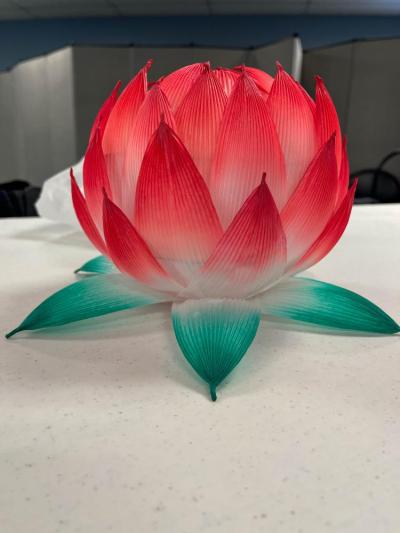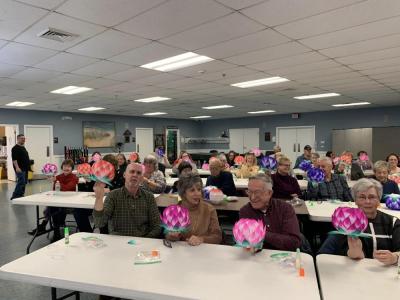Council on Aging celebrates South Korean culture with food and crafts
The day blossomed into a cultural journey through South Korea as a room of 40 seniors designed their own lotus flower lanterns at the Council on Aging on Tuesday, Feb. 20 in celebration of Korean culture, cuisine and history.
The event was made possible through a $6,900 grant from the Massachusetts Council on Aging, which will go toward introducing seniors to cultures from across the globe.
Younhee Shin, a member of the Korean Spirit and Culture Promotion Project, attended the event virtually. Shin walked the audience step-by-step through the process of making their lanterns made from a traditional Korean paper named hanji, which comes from a tree that grows in South Korea. All the materials for making the lotus lanterns were provided.
In honor of Buddha’s Birthday, Koreans light paper lanterns that are sometimes designed to look like a lotus flower, which symbolizes purity and spiritual awakening. The lighting of these lanterns also represents enlightenment and wisdom through following the Buddha’s teachings.
“From the Seoul,” a Korean restaurant in North Dartmouth, provided the food, which included Korean style rice cakes, sweet potato noodles, and boneless beef sauteed with vegetables.
Amy Dipietro, director at the Council on Aging, said they’re planning on hosting similar luncheons in the coming months that will feature French, Indian and Irish dishes.
All the lunches will be accompanied by educational lessons and activities to teach people about those cultures. The Irish luncheon in March will be held on St. Patrick’s Day and will feature an Irish singer.
“For me, it was an educational experience,” Dipietro said of the months-long process to organize the program. “Everything that we do here is for the benefit of people’s health and well-being.”
After they designed their lotus lanterns, the audience watched a documentary about South Korea’s rapid economic revival following the Korean War.
One of the attendees, Debbie Pontes, said the documentary really opened her eyes to South Korea’s culture, economic growth and architecture.
“I had no idea they were designed that way,” Pontes said of the skyscrapers in Seoul, the South Korean capital. “It kind of reminded me of New York.”
“It gave us a much better and deeper understanding of Korea,” said Chihau Chen.














